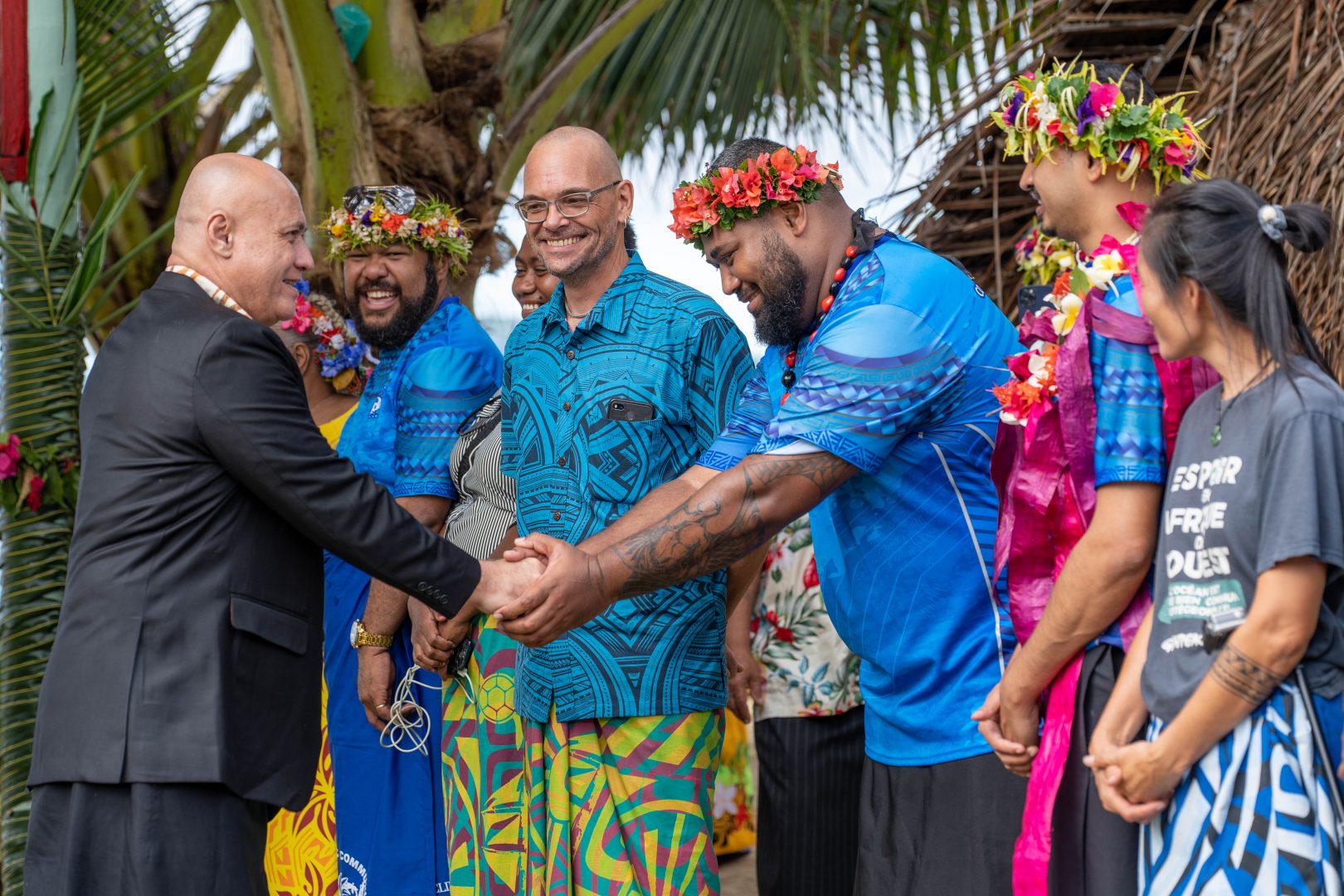Greenpeace Australia Pacific has joined civil society groups, Pasifika activists and climate leaders on Kioa island, Fiji, as part of a regional dialogue to progress key climate issues facing the region.

From August 7-9, more than sixty civil society representatives from across the Pacific came together on the remote island of Kioa for a ‘talanoa’ or discussion as part of the next stage of the Kioa Climate Emergency Declaration.
Over two days, delegates discussed pressing climate issues facing Pacific communities, and progressing the design of a regional finance mechanism, the Kato Pacific Community Climate Fund.
Sepesa Rasili, Senior Campaigner at Greenpeace Australia Pacific, said the dialogue highlighted the urgent need for global and regional solutions to the climate crisis.
“Pacific Island nations have been leading the way on a range of climate issues, from the establishment of a Loss and Damage fund at COP27, to calls for a moratorium on Deep Sea Mining, and the historic Pacific-led campaign for an advisory opinion on the human rights impacts of climate change from the International Court of Justice,” he said.
“The Kato Pacific Community Climate Fund is yet another example of Pacific Island leadership and an illustration to the rest of the world of what’s possible when civil society organisations and governments work together with the collective goal of climate justice.
“We are humbled to have been included in this process and remain committed to working alongside our allies in the Pacific and amplifying the demands they have developed in recognition of the unique challenges that the region is facing.
“Greenpeace Australia Pacific will continue to escalate key demands within the Kioa Declaration in recognition of Australia’s position as a global laggard on climate and a major contributor to the climate crisis — that means no new coal, oil and gas approvals and no more fossil fuel subsidies.
“We also call on Minister Penny Wong to make the strongest possible submission to the International Court of Justice Advisory Opinion.”
The residents of Kioa island are descendents of Vaitupu in Tuvalu who began migrating to the Fijian island in the 1940’s. They identify as Tuvaluan, and speak and practise the unique language and culture of Tuvalu. Kioa is considered an example of a successful model for future climate migration, one which preserves culture and human dignity.
In his opening address to the conference, Guest of Honour the Hon. Seve Paeniu, the Tuvalu Minister for Finance and Climate Change, said high emitting countries must act to protect Pacific nations from rising seas as a matter of moral principle.
“The Pacific island countries contribute the least to the cause of climate change, and yet we do not only suffer the most damage in terms of the impacts of climate change, but we have to consequently bear the heaviest price in terms of cost of adaptation and mitigation,” he said.
“It is within this context that this Kato conference held in Kioa is very timely and visionary.”
The Kato Fund is seen as a powerful vehicle to amplify the unique challenges and solutions small Pacific communities face, and an opportunity to strengthen collaboration across the region.
The Rainbow Warrior leaves Kioa today for Rabi Island to celebrate International Day of the World’s Indigenous Peoples, before returning to Suva. The ship has been travelling across the Pacific since June, sailing around Vanuatu, Tuvalu and Fiji in solidarity with climate impacted communities and gathering testimonies of climate harm to present to the International Court of Justice.
For more information and a map of Greenpeace Australia Pacific’s Ship Tour: greenpeace.org.au/act/pacific-campaign
—ENDS—
